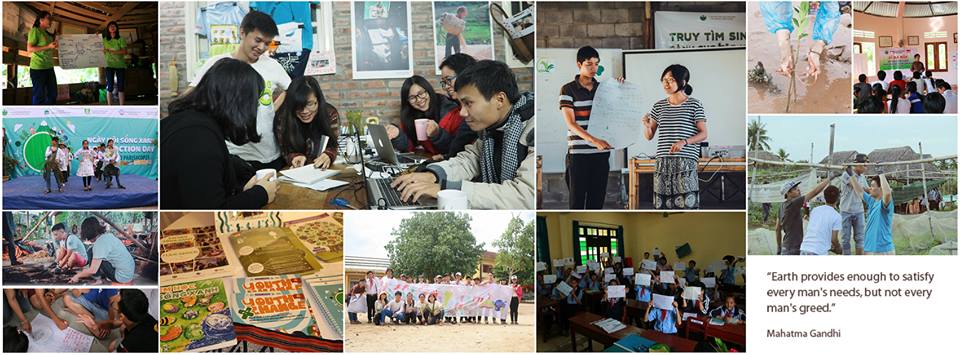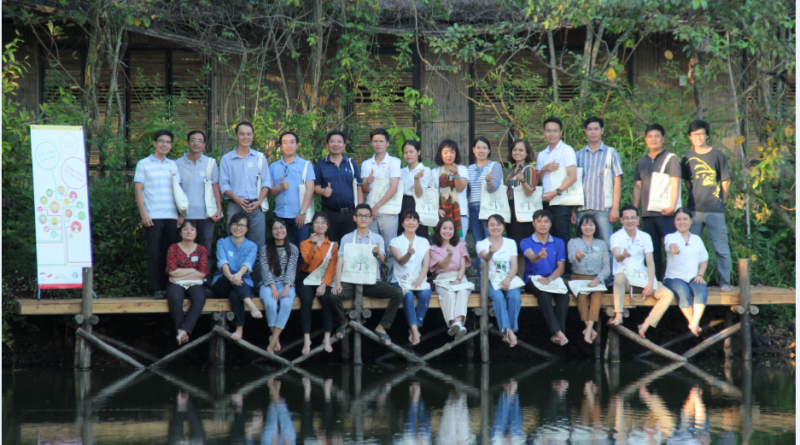CAMPAIGN “Eco-lifestyle and Minimize Plastic Waste in the College”
CAMPAIGN “Eco-lifestyle and Minimize Plastic Waste in the College”
INNOVATION PROGRAM ON VOCATIONAL TRAINING IN VIETNAM II
During the period from December 2020 to May 2020, the campaign for “Eco-lifestyle and Minimize Plastic Waste in the College” under programme “Reform of Technical Vocational Education and Training in Viet Nam II” (TVET Programme) implemented by GIZ with the support of C&E Center consultant team will be carried out at Long An Vocational College and the Vocational College of Machinery and Irrigation (VCMI) in Dong Nai
Long An Vocational College, and the Vocational College of Machinery and Irrigation (VCMI) in Dong Nai will be hosting the pilot campaign in 2020 – early 2021. An estimated 80 core students and teachers are expected to have direct access to the training, and another 200 students and teachers are expected to be reached through other sensitization activities.
As a second step, the campaign will be carried out at VET colleges in Dong Nai province in 2021, with VCMI teachers gradually taking an active role as trainers/facilitators.
General background of the TVET Programme
The joint Vietnamese-German technical cooperation programme “Reform of Technical Vocational Education and Training in Viet Nam II” (TVET Programme) aims to better align TVET in Viet Nam to the changing world of work. It is funded by the German Ministry of Economic Cooperation and Development (Bundesministerium für wirtschaftliche Zusammenarbeit und Entwicklung, BMZ) with counterpart funds from the Vietnamese Government. The implementing agencies are the GIZ and the Directorate of Vocational Education and Training (DVET) under the Ministry of Labour, Invalids and Social Affairs (MoLISA). In order to reach the project’s objective, three main outputs have to be achieved:
- Output 1: State actors, TVET staff, TVET institutes and the business sector are interconnected
- Output 2: The regulatory framework of TVET is aligned to the requirements of the changing world of work
- Output 3: The concept of High-Quality TVET institutes is successfully implemented in selected TVET institutes.
Thereby, the TVET Programme contributes to the improvement of the supply of demand-orientated qualified workforce in Viet Nam.
Background of the activity
In 2019 the Ministry of Labour, War Invalids and Social Affairs (MoLISA) became the 8th Ministry in Vietnam to have issued a ministry-level action plan for the implementation of the National Action Plan for Green Growth. The Action Plan comprises a strong component of Greening TVET, of which greening TVET institutes is defined as a regular activity. DVET is also assigned to devise an Action plan for the TVET sector for the 2020 – 2023 period.
In 2018-2019, the TVET programme worked with an international expert to introduce the UNESCO-UNEVOC’s approach to greening TVET to TVET practitioners and DVET leaders. The approach comprises five components i.e. greening the campus, greening the curriculum and training, greening research, greening the community and greening institutional culture.
Throughout 2018-2019, several greening TVET actions were taken by different TVET stakeholders. MoLISA approved a series of ‘learning outcomes’[1] for training programmes at the intermediate and college where ‘green’ aspects are included. DVET has also been working with the TVET programme to introduce a training module to provide basic cross-occupational green skills to TVET students. At the TVET institutes’ levels, greening TVET examples also exist e.g. the application of the 3R and 5S principles in TVET school workshops.
Objective and approach
In 2020 – 2021, the TVET programme seeks to pilot a campaign on action planning for plastic use management on VET campuses to:
- Sensitize VET students and VET practitioners on Greening TVET, especially greening TVET campuses in general, and plastic use management in particular;
- Arrive at a finalized format for the campaign, and a comprehensive package of accompanying materials (training, promotion, etc.);
- Build capacity for VET teachers at the piloted colleges so that they can launch and manage the campaign on plastic waste reduction, and cascade the activities to peer VET teachers in the province and beyond;
- Build capacity for VET teachers at the piloted colleges so that they can expand the scope of action planning to other areas of Greening VET campuses (e.g. waste management, energy efficiency, transport, etc.);
- Provide experiences and lessons learnt for other Greening TVET campaigns to be carried out in 2021, and contribute to the development of DVET’s Action Plan for Greening TVET for the period 2020-2023 and other guiding documents.Officially known as ‘minimum requirements of knowledge and competencies to be achieved by learners upon graduation from intermediate and college level VET programmes’

